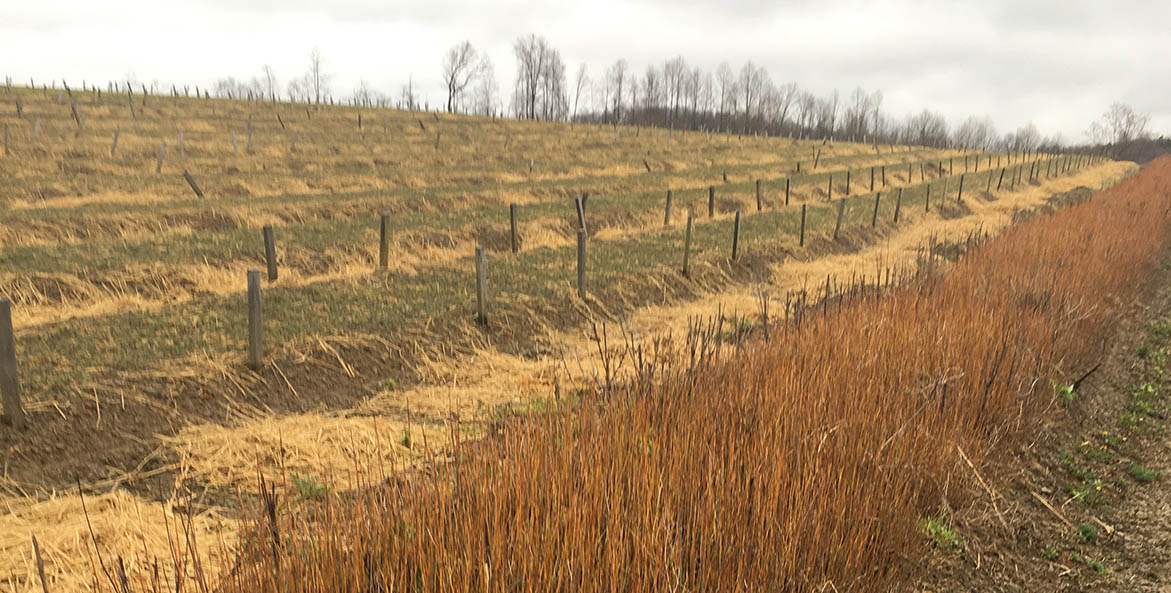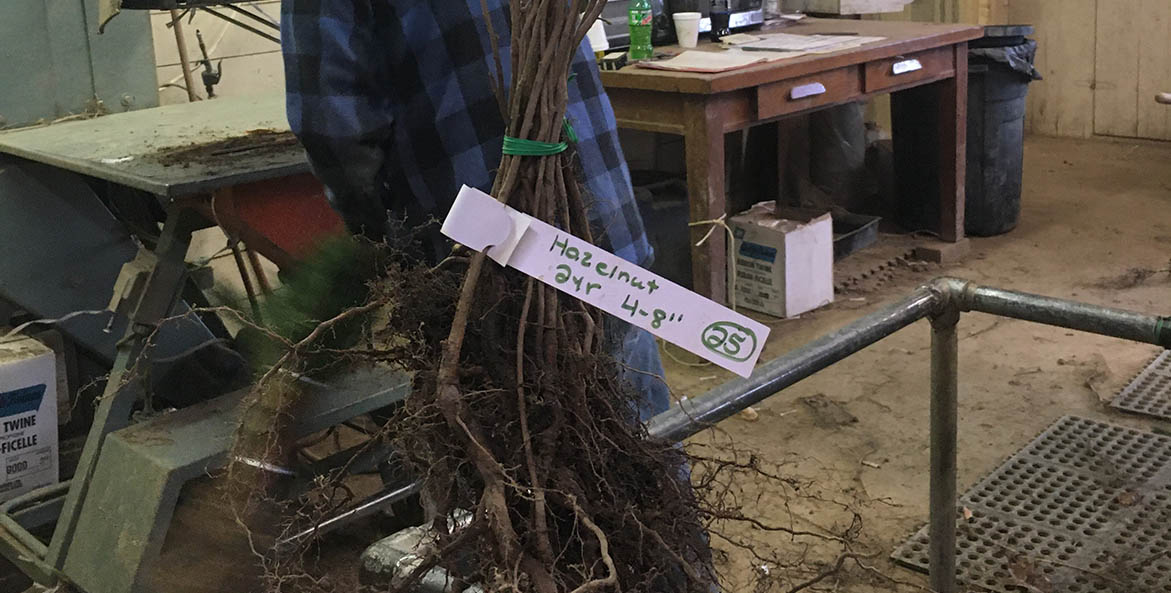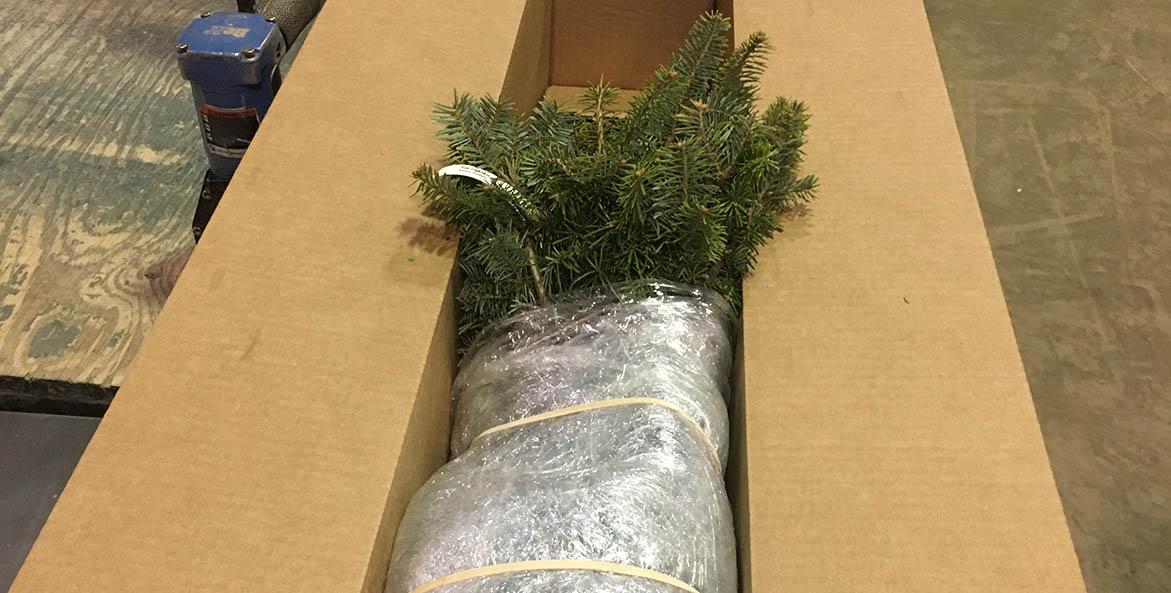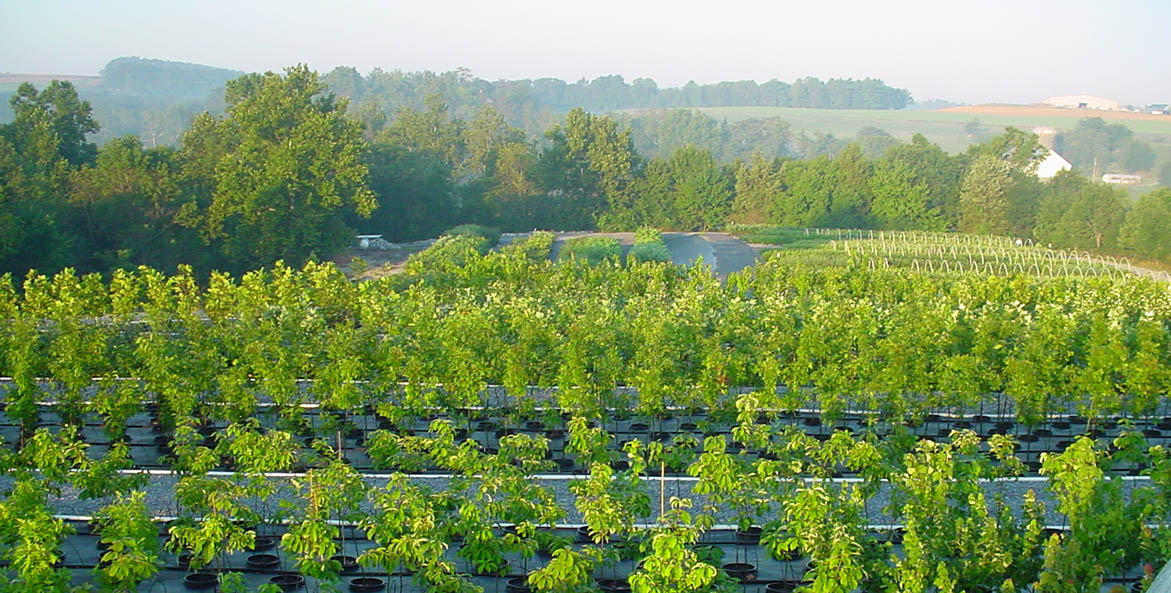As life challenges in the days of COVID-19 continue, so does the work of adding trees and shrubs to Penn's Woods that will clean and protect Pennsylvania waters. The clean water work does not stop.
This spring, partners in the Keystone 10 Million Trees Partnership are stepping out, maintaining safe distances from one another, and expecting to plant nearly 70,000 trees.
The Partnership's goal is to plant 10 million new trees in Pennsylvania before the end of 2025. It is a collaborative effort, coordinated by CBF, of national, regional, state, and local agencies; conservation organizations; watershed groups; conservancies; outdoors enthusiasts; businesses; and individuals.
Essential sources of those Pennsylvania trees include growers like Musser Forests, Inc. of Indiana County and Octoraro Native Plant Nursery in Lancaster County.
"We are operating full force," says Jim Kriston, manager at family-owned Musser Forests. "We can still operate. We are agriculture, a grower, and a nursery."

A two-year-old tree seedling bed grows at Musser Forests, Inc., in Indiana County, PA. Musser provides trees to the Keystone 10 Million Trees Partnership.
Musser Forests, Inc.
Crop production, which includes nurseries and greenhouses, is considered a life-sustaining business in Pennsylvania, and so those operations are permitted to continue.
With restrictions and guidelines in place to slow the spread of coronavirus, growers and nurseries are still operating at warp speed.
"Warp speed is what we function at anyhow in the spring," says Octoraro co-owner and President Jim MacKenzie. The company is celebrating its 30th year. "Coronavirus has definitely added significantly to the challenges of spring."
The calendar is also providing its annual push for production.
"It's springtime. We literally have two months to process thousands and thousands of orders," Kriston says. "Dealing with bare root material, we have a very limited window of how we can get trees and shrubs processed. We have to dig it, crate it, and ship it before it breaks leaf or starts to bud out."
Kriston says that bareroot trees that must be held-over and stored in coolers last only so long.

Tree seedlings are graded and bundled at Musser Forests, Inc., in Indiana County, PA. Musser provides trees to the Keystone 10 Million Trees Partnership.
Musser Forests, Inc.
The Partnership is getting container-grown trees and shrubs from Octoraro as well as the tree and shrub shelters and stakes to protect them once they are in the ground.
As the ongoing virus affects outside activities, tree orders impacted by restricted public gatherings add to the juggling act for growers.
"We're having postponements until later spring, and we're seeing people delay, waiting to see how things shape up," MacKenzie says. "We have those doing outright cancellations because it may be a one-time event and they can't reschedule it. Then we've also got a number pushing until fall. But happily, the majority of our spring orders are going out the door."
Delivery delays cause space management issues for Octoraro because the container plants must be potted into larger containers, taking up more space and impacting production of the next growing season.
"We've had many cancellations," Kriston says. "People say, 'we're holding off,' or 'we don't know what to do.' So, it's been a struggle." He adds that communications with CBF has avoided cancellation confusion for Partnership orders.
Musser and Octoraro are shipping trees directly to Partnership planting groups and other customers. It suits the guidelines that call for social distancing of six feet from one person to another.

An order of trees ready to be packed at Musser Forests, Inc., in Indiana County, PA. Musser provides trees to the Keystone 10 Million Trees Partnership.
Musser Forests, Inc.
At Musser Forests, Kriston says he appreciates having a good core group of employees that knows how to be productive and safe.
"This time of year, we are basically moving at warp speed," Kriston says. "They are cleaning constantly and trying to maintain distance. We have two months to get through this. If we don't do it properly and somebody gets sick, then the nursery stops."
Octoraro's main production staff is all Amish. "Every effort is being made to keep our own staff and all their families in the Amish community healthy," MacKenzie says in detailing extensive protective steps instituted at the nursery. "We are the disseminators of information back home. We talk to the bishops and are out there advocating for this safety and I'm very pleased thus far."
While some of the challenges this spring are unique, growers know that, as with other agricultural production, struggles come with a seasonal industry.
"This is a crop. It may not be grown outside like a traditional crop like corn and soybeans," Jim MacKenzie says. "You can have crop failures. You can have adverse weather events. Projects get delayed all the time for nurseries like us so we're constantly dealing with shifting sands."
"It always works out in the end," Kriston adds. "It always does. It's what we do. It's what we've always done."
Trees and shrubs like those provided by Musser Forests and Octoraro Native Plant Nursery are essential to the environment and to those who put them into the ground.
Trees are among the most cost-effective tools for reducing pollution before it reaches rivers and streams.
"This is really powerful for people's mental health right now to be out in nature, planting plants, social distancing, and all the important things we have to take account for," Jim MacKenzie says. "The Centers for Disease Control and our governments are telling us that we should be outside enjoying nature. This is one of the greatest ways to do it."




